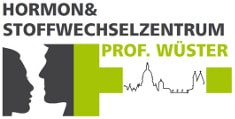Endocrinologist (Mainz): Thyroid hormones and fracture risk
Prof. Dr. Dr. h. c. Wüster from Mainz on the connection between bone formation and bone loss
MAINZ – Thyroid hormones have an influence on the process of bone formation and degradation. They therefore influence the risk of developing a fracture. Prof Dr Dr hc. Christian Wüster points out this connection. He is referring to studies carried out by researchers led by Dr Elena Tsourdi from Dresden University Hospital 1. Wüster is an endocrinologist and runs a long-established practice in Mainz. The connection between the concentration of thyroid hormones and bone formation and resorption exists throughout life, emphasises the specialist.
Endocrinologist from Mainz emphasises: early diagnosis is key
The researchers from the University of Dresden describe that unrecognised hypothyroidism, i.e. a pathological underactive thyroid gland, causes bones to mature much more slowly in childhood and can lead to pronounced growth retardation or stagnation. ‘In this context, timely treatment is particularly important in order to support bone growth,’ explains Prof Wüster. To this end, the synthetic hormone levo-thyroxine (T4) is replaced with medication during treatment. If hypothyroidism is present in adults, this has a negative effect on bone formation and resorption.
The consequences of this have not yet been sufficiently investigated. For example, it is unclear whether this leads to an increased risk of fractures.
Overproduction of thyroid hormones: Information from an endocrinologist in Mainz
Early diagnosis and treatment of problems with thyroid hormones is also important in another context: so-called hyperthyroidism also has an influence on growth in childhood. This leads to an overproduction of thyroid hormones. As a result, the affected children grow faster than average. However, after the premature fusion of the growth plates, growth stops. This process can be influenced by early treatment, explains Prof Dr Dr h. c. Christian Wüster. A relatively well-researched connection between the overproduction of thyroid hormones (hyperthyroidism) and osteoporosis has been scientifically investigated. Post-menopausal women with an excessively high concentration of thyroid hormones in their blood often develop osteoporosis. This disease leads to a loss of bone mineral salt content and increases the risk of fractures.
1 Tsourdi E et al, Internist 2018; 59: 661-667.
Image: © Kateryna_Kon/Fotolia

